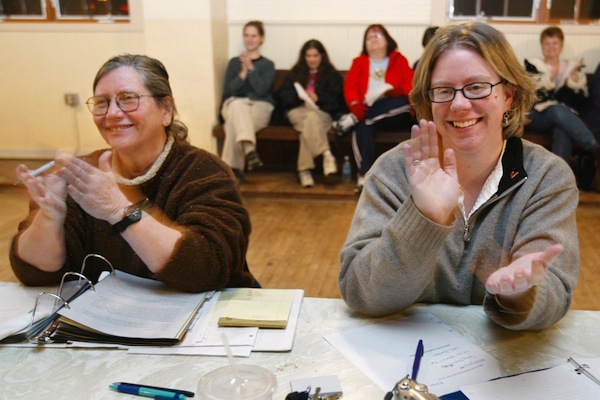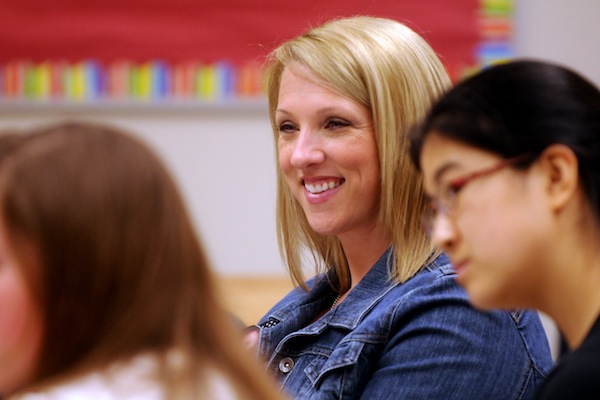
Parents have been lying to their kids since they were born. From Santa Claus to the tooth fairy, parents sprinkle embellishments throughout their child’s life, so why would parents stop when it comes to which of their children they love more?
Favoritism is unavoidable, although well concealed in most situations, it exists in every family. If a child went up to his parents and asked whether they liked him or his sister best, the parents would give the boy the same answer, “we love you all equally.” But that statement is untrue.
In 2005, a study by Katherine Conger of the University of California Davis said that 65 percent of mothers and 70 percent of fathers exhibited a preference for one child. Although parents are supposed to love all their children with the same undying passion, the findings of the study proved that even parents can be biased.
The study proved that it’s human nature for parents to love one child more and prefer them over the others. Although picking favorites is unavoidable, it’s a horrible practice.
The practice of favoritism does much more harm than good. The kid who is not the favorite often feels he isn’t good enough for his parents, which can lead to depression in a child. Psychiatrist Dr. Ellen Libby, author of “The Favorite Child,” wrote in the Huffington Post online that the unfavored child often doubts the generally accepted rule of unconditional love. And it makes them fear that if their parents don’t love them, who will? She explains that the unfavored therefore separates himself from others socially because he fears he will always be second. This causes him to feel lonely, which is a common indicator symptom of teenage depression.
In addition favoritism can also can harm the favorite. Many times parents put an incredible amount of pressure on their favorite. For example, junior Meredith Behrens attests that as the favorite she feels that she has to live up to a higher standard, because her parents expect more from her as the favorite. She says that she doesn’t want to let her parents down, and as the favorite, it makes it even harder when she doesn’t please them. Also, Behrens says that there is a pressure to remain the favorite child. The unfavored child may wish for the parent-child relationship that the favored child experiences, but they fail to see the negative aspects and expectations to which the favored is held.
Not only does favoritism hurt parent-child relationships, but it also results in sibling rivalry.
Although they are related and love each other, siblings often silently compete with one another for their parents’ attention. Whether it’s academic competition, such as for a higher SAT score, or physical competition, like for a faster mile time, siblings tend to compare themselves to one another. The desire to be the preferred child often leads to arguments and fights and usually harms the bond between siblings.
An article from USA Today online states that the fight for attention doesn’t end as kids but instead carries well into adulthood. Sibling rivalry continues to rage on between siblings and causes the already weak relationship between siblings to worsen. Bad relationships between siblings are even more serious in adulthood, when arguments arise over issues like the health care of now-elderly parents instead of something trivial like who gets the first shower in the morning or when they will leave for school.
There are many factors which can determine “the favorite.” In some families the oldest child is the favorite. This is because that child was the first–the first child a mother was pregnant with, the first child a father rocked to sleep, the first child to walk. Firsts are undeniably special.
However, many older siblings feel like they aren’t the preferred child and that the youngest is actually the favorite. Behrens, the older sister of two younger siblings, said that older siblings often feel cheated when their younger siblings get things they had to wait for such as cellphones and Facebook accounts.
Jeffery Kluger said in Time Magazine’s cover story, “Playing Favorites,” that not only does birth order affect the race for favoritism, but so do factors such as behavior, brains, beauty, and gender. A father may love his son for being on the football team, but he might love his daughter more for being better behaved and smarter, or vise-versa.
Senior Monica Lee said that she feels that she and her sister, sophomore Jane Lee, are favored for different activities and strengths. Monica Lee said that her parents prefer them for different things depending on who certain things better.
To some degree, favoritism is unavoidable. However, parents can take a step in the right direction to prevent severely favoring one child. Psychiatrist Dr. Gail Saltz, reported on the Today Show that favoritism is a mental issue that can be controlled eventually through two simple steps. First, the parents need to identify and confess to favoritism. Then, by spending time with equal, quality amounts of time with each child, they can overcome the instinct to favor one child over the other. #










